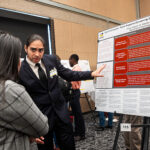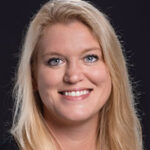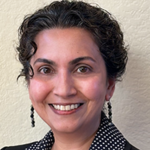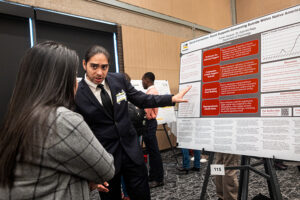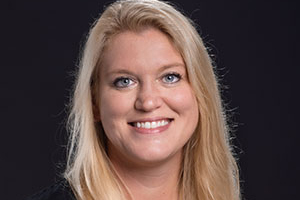
It’s never too late to pursue an educational dream at the University of Wisconsin–Milwaukee.
Like others on UWM’s campus, today’s nontraditional (older than typical college-age) students come from diverse backgrounds.
For example, Clarence Garrett, 87, who is African American, graduated in December with a general degree in Letters and Science, completing an educational journey he started more than 50 years ago.
Why college?
Garrett returned to the UWM campus as a junior in the spring of 2006 to complete an education interrupted by family obligations. “I just wanted to finish something I started.”
Rhonda Powell, also African American and a 41-year-old mother of five, decided to put hard-won medical knowledge to work in a new career. When her husband was disabled with diabetes and her sons diagnosed with asthma, she started researching their conditions. Going through the hospice care experience with her grandmother developed her interest in hospice care nursing. Although she had an undergraduate business degree, a few years ago she was running a paper route to help support her family. In December, she received her master’s degree as a Clinical Nurse Specialist and is starting a new career at a hospice center.
Susan Dansby, a member of the Oneida Nation, is a mother and grandmother. She had an established career in child care administration when she decided to turn her own experiences in the foster care system into a way of helping other children. She transferred from Milwaukee Area Technical College (MATC) with the goal of entering UWM’s Urban American Indian Teacher Training Program.
Melissa Vasquez, who is in her mid-30s, is a second-generation Mexican-American, working on her doctorate in educational psychology after several years away from college to raise her family. Her interest in her major grew out of her own children’s experiences with counselors and assessments in the school system.

Jude Romano, a 43-year-old Filipino, became interested in a midlife career change after caring for an elderly relative and being laid off from his job. His wife, Hayna, a nurse for 20 years, encouraged him to go into nursing.
Agnes Williams, Vernon Wilkinson and Curtis Durden, all graduate students in the School of Education, returned to the academic world after age 50 to develop educational skills that would serve their African American communities and young people.
Challenges and benefits
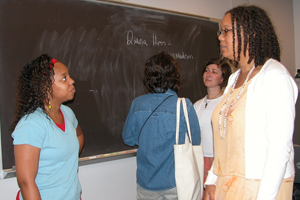
Starting or continuing higher education as an adult student poses challenges, and sometimes can be especially difficult for students of color, who are often the first in their families to attend college.
Many start out lacking confidence in their abilities because of previous negative experiences with school or low expectations from earlier educators. When she received one of the lowest scores in her class on her first graduate-level test, Powell was discouraged. “I thought I wouldn’t be able to keep up with the younger students.” However, she didn’t let old self-doubts undermine her resolve. She went on to earn a 4.0 GPA that year, and graduated with a GPA of 3.8. Along the way, she won a national scholarship for a paper she wrote on hospice care.
Vasquez, who is the first in her immediate family to get a high school diploma and go on to college, says that while many Latina/o families she knows value education, her own father, a Mexican immigrant, discouraged her because he felt advanced education would “Americanize” her and destroy her ties to her heritage.
Others use their background as motivation. “I migrated from the Philippines at the age of 11 with my single mom into the ghettoes of Chicago,” recalls Romano. “From there, I rose to become a pilot to prove to the world that short, half-blind Filipinos can fly. We (immigrants) see this country as the land of opportunity.”
Many of those interviewed for this story received financial aid, as well as support and encouragement from UWM’s various ethnic centers, from counselors and from teachers.
Vasquez, who did her undergraduate work at another UW System campus, says the diversity at UWM makes her feel more at home, and organizations like the Roberto Hernandez Center give her pride in her heritage. She’s also been active with Multicultural Student Services, and has done presentations at that organization’s conferences.
However, being an older student can be challenging regardless of ethnic background.
Like their younger peers, many face economic challenges, and often have to go the extra mile – sometimes quite literally. Vasquez, who’d bought a bare-bones computer and software for her doctoral work, relies on borrowing laptops from UWM’s computer labs when she needs more sophisticated programs.
One December Saturday, she called ahead to see if loaner laptops were available, then drove in from her home in Waukesha – only to find the last laptop had just been signed out. With another laptop due back in three hours, she chose to remain on campus to wait for it. Of course, the first snowstorm of winter hit that day, complicating her return to Waukesha.
For Dansby, who suffers from serious test anxiety, college is a continuing struggle. And, while she brings years of real-life experience to her classwork, she hasn’t that much experience in the academic world. “Some teachers are really phenomenal,” she says, but a few don’t understand that older students may need some flexibility because of outside obligations and commitments. On the other hand, people like Diane Armour of UWM’s American Indian Student Services have gone out of their way to provide encouragement and mentoring.
Vasquez has a good relationship with other doctoral students in her cohort, but often can’t socialize with the group outside of class because she has to get home to her two sons and the nephew she is helping raise. No celebration trips to trendy Water or Brady Street bars for her, she says wryly. And, because of her multiple family obligations, she made the difficult decision to delay the practicum that is part of her program. “It felt like the right decision.”
Age has some advantages, said Garrett prior to his graduation. “True, my memory isn’t as good as it used to be, but that just means I have to study longer hours.” And, he added, since he doesn’t have to work and he’s no longer raising children, “I’m the one at the advantage. I’ve got nothing but time.”
Romano views the age difference with humor. “My wife agreed to be my ‘sugar mama’ on the condition that I cannot live in the dorms, join a fraternity or fly to Cancun on spring breaks.”
